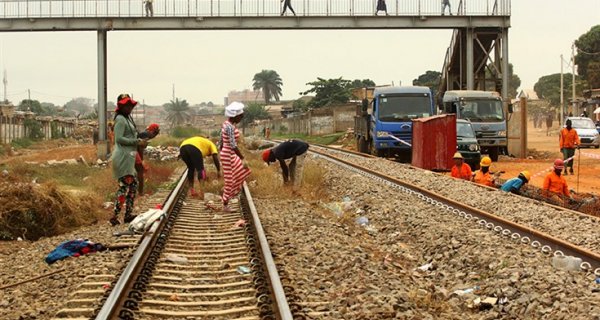The joint report on the Proposed Law on the Crimes of Vandalization of Public Goods and Services was considered this Monday in the National Assembly, to go to the vote, in general, on the 19th of this month.
Speaking to the press, the deputy rapporteur, João Guerra, said that “there really have to be heavy penalties”, pointing out the increase in the level of vandalism across the country in recent years.
“It is not possible to remove communications from the railways, because it could cause serious train accidents, just as it is not possible to remove sleepers and railway lines. If we then address issues linked to the water distribution network, God help me”, he said.
For the deputy, the only “easiest way to solve this is to criminalize it”, highlighting the need to “take serious measures for those who commit these acts”, which must extend to their supporters.
“We have to understand that this action has to be thoroughly criminalized, as I said, it could be sentences of 12 to 18 or 20 years, it depends on the deputies, we need to carry out a great social mobilization here. And it seems to me that churches and civil society are already doing this. It cannot be a child of seven, eight, nine, 12 years old who gets it into his head that we are going to rob the railway transmissions, that is not possible”, he highlighted.
In the proposal, the destruction of transport infrastructure (road, railway and nautical) could be punished with sentences of 20 to 25 years in prison, according to Angop.
According to the proposal, the destruction of a public property or the disruption of a public service can be punished with a prison sentence of five to ten years, establishing a penalty of ten to 15 years in prison for the promotion of vandalism and, if involve transport infrastructure, an increase to 20 to 25 years.
The diploma establishes penalties of between three and eight years in prison for anyone who attacks the security of public goods and services, such as disclosing security information or threatening to destroy a public asset, and the punishment can be increased by a third if there is actual danger. to life or physical integrity.
The proposed law also provides for penalties for the illegal transformation and export of public goods, from ten to 15 years, and for the receipt of public goods from six to 12 years.
The executive highlights in the justification of the proposal, that the actions of vandalization of public goods and services have been increasing exponentially, transforming into frequent behaviors with inestimable social, economic and financial losses, which affect energy, water, gas chains , fuel and public transport.







